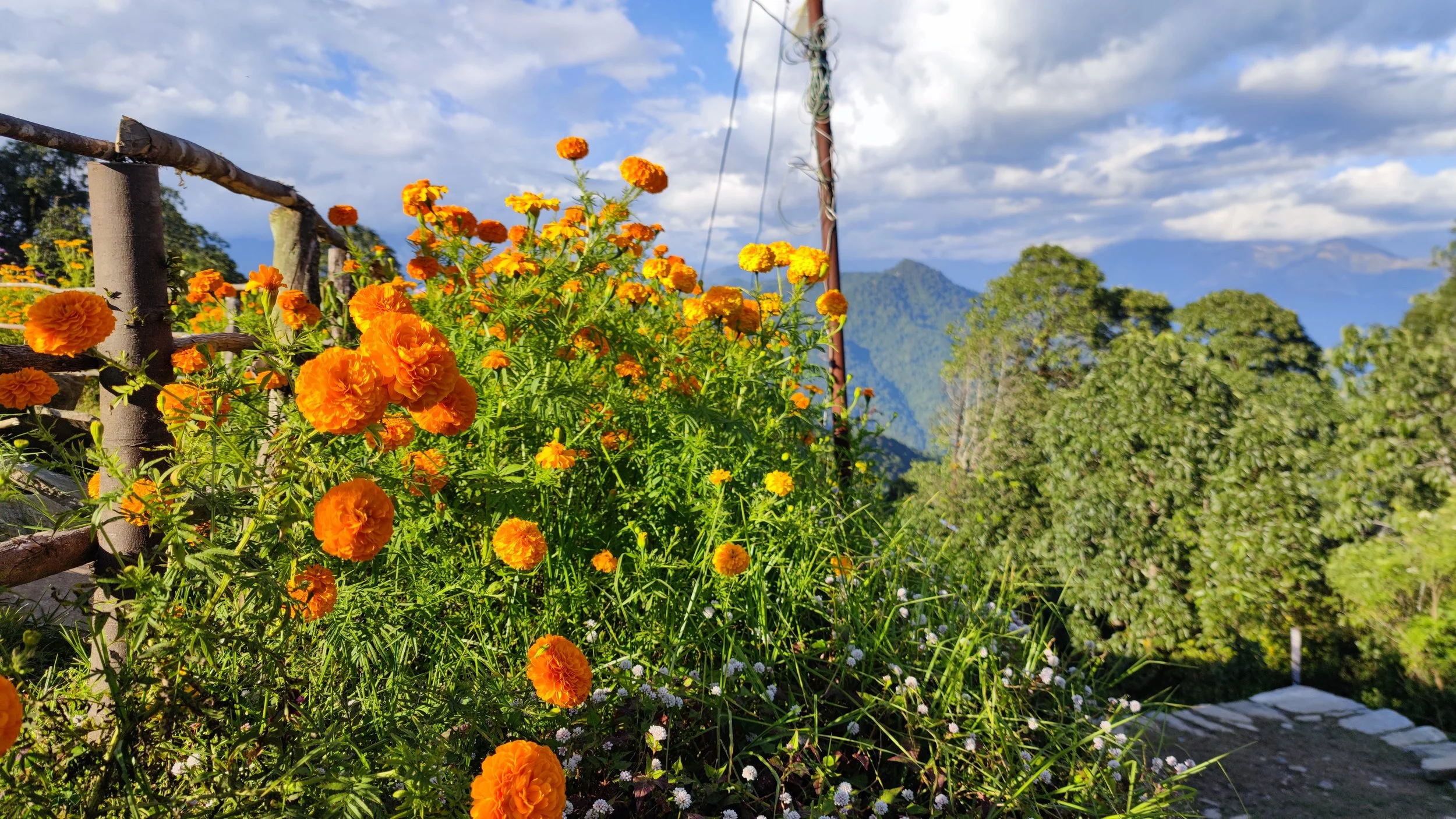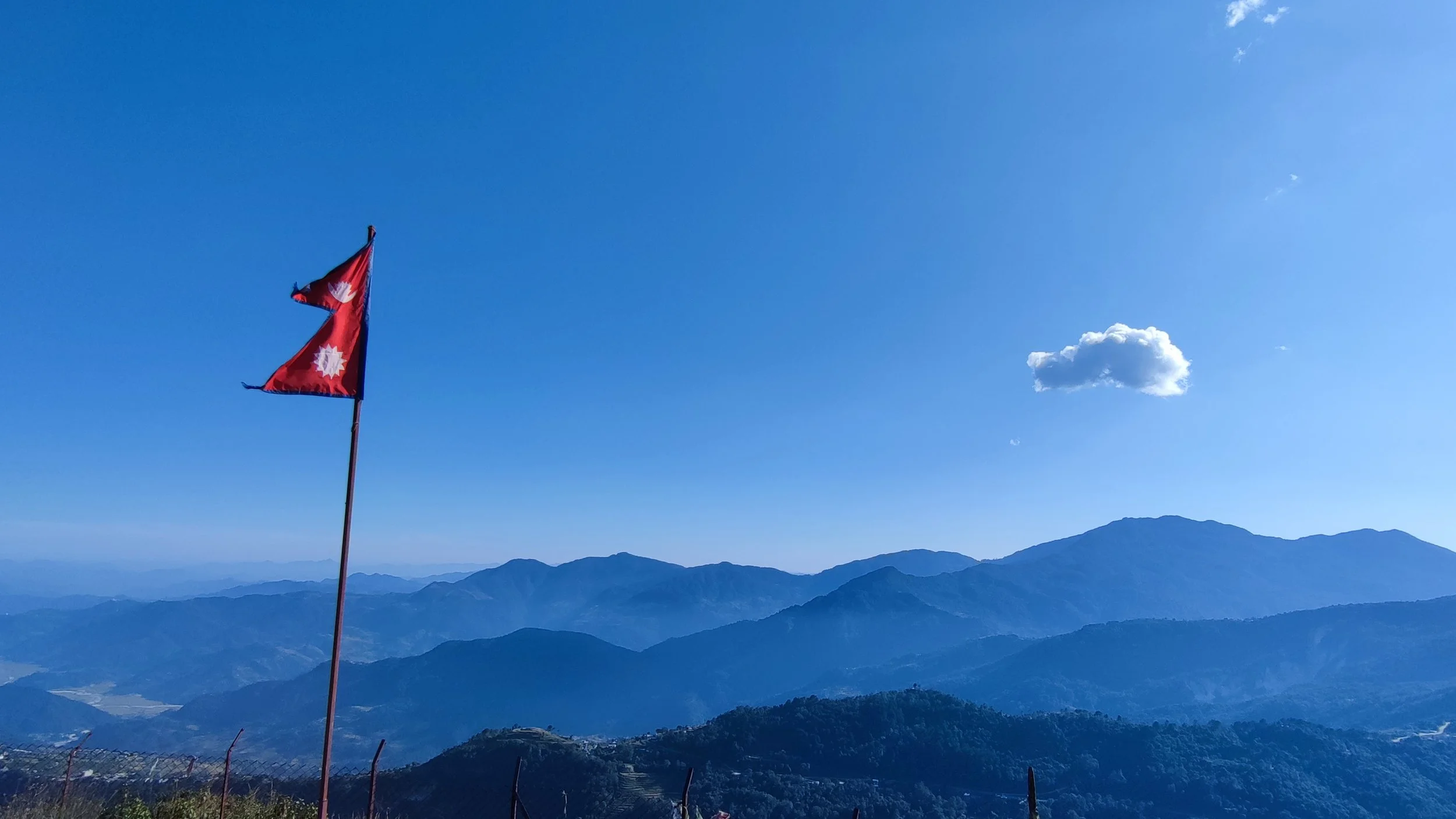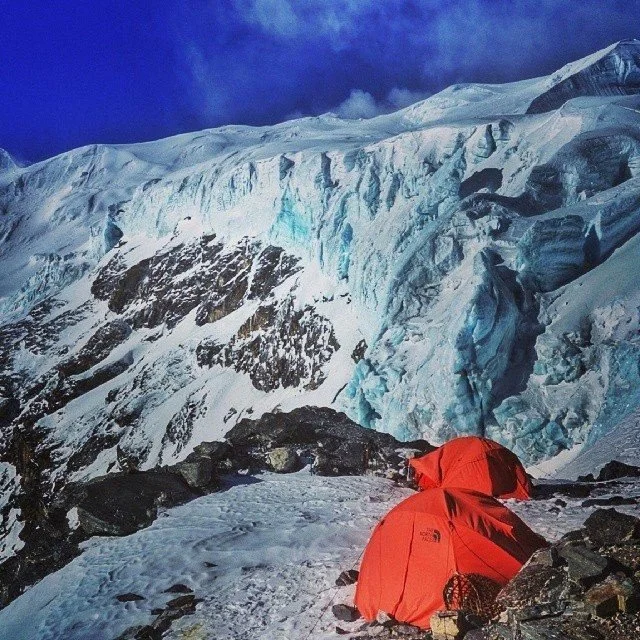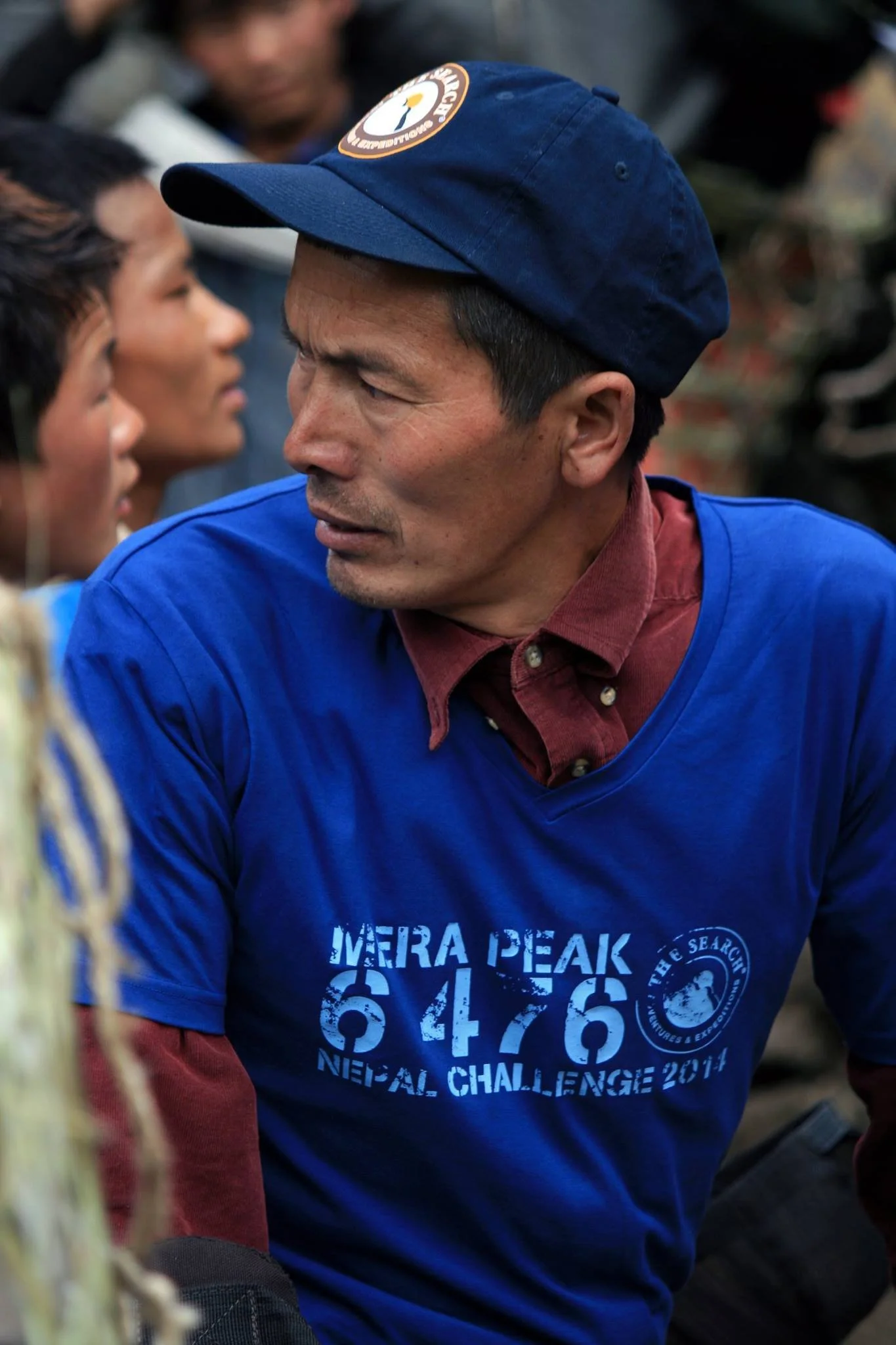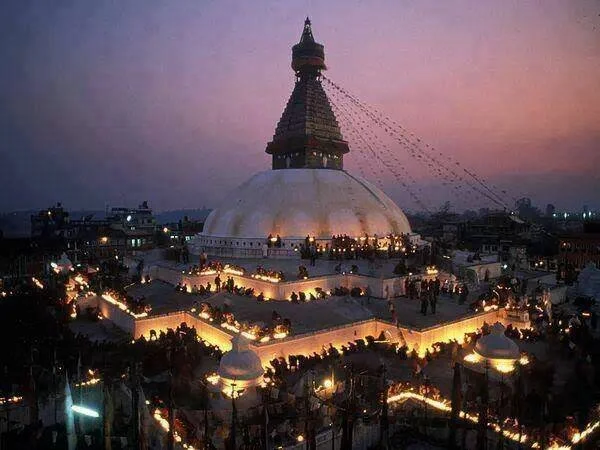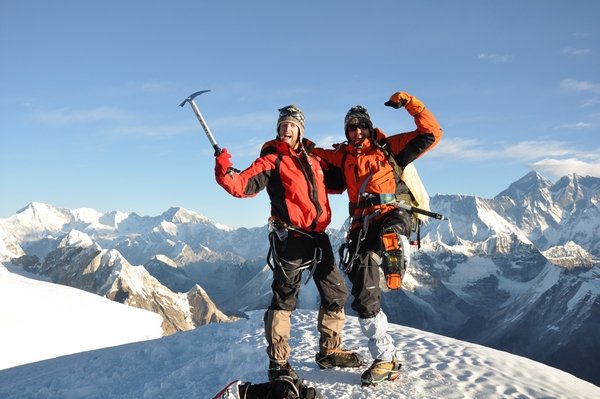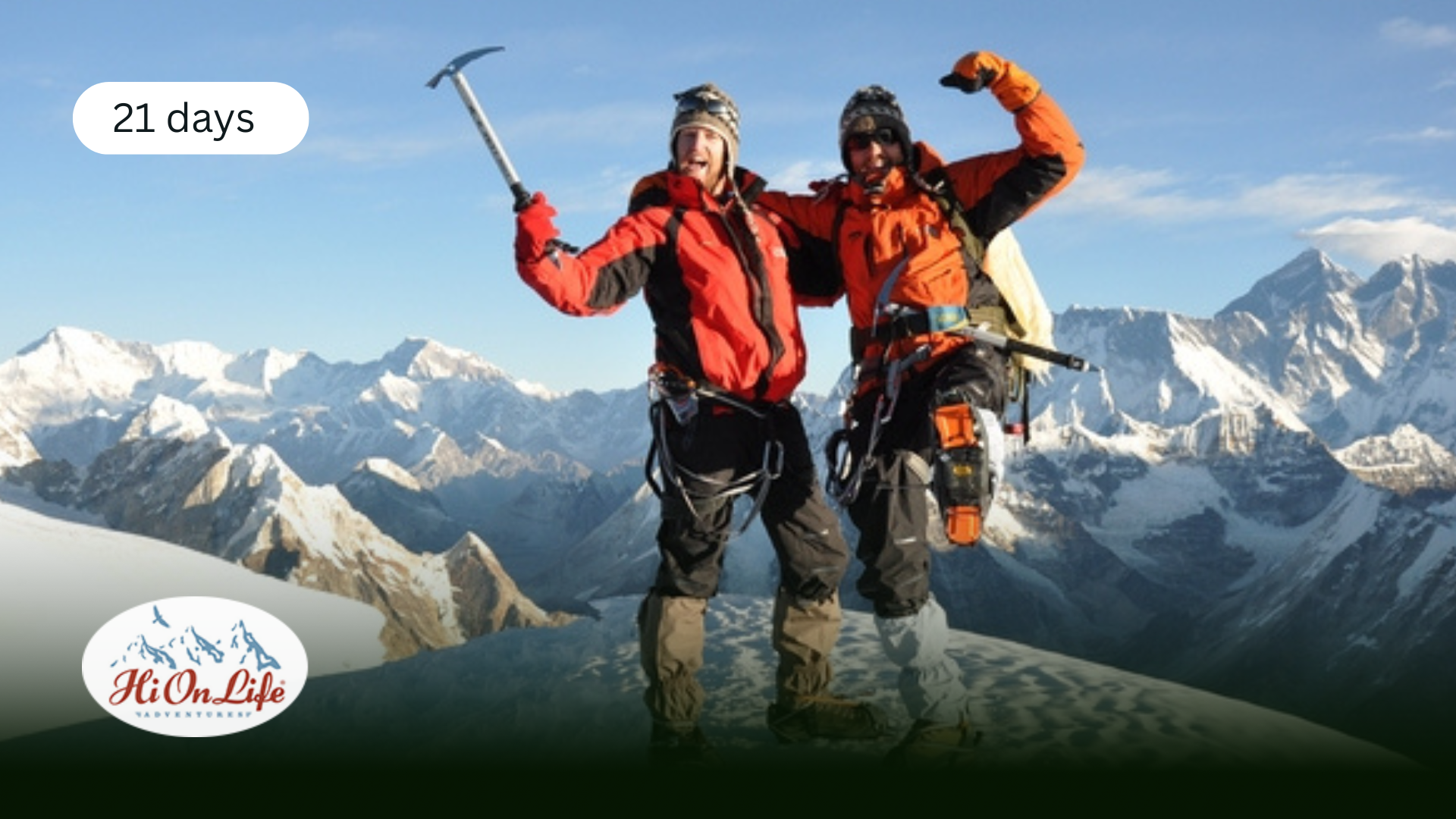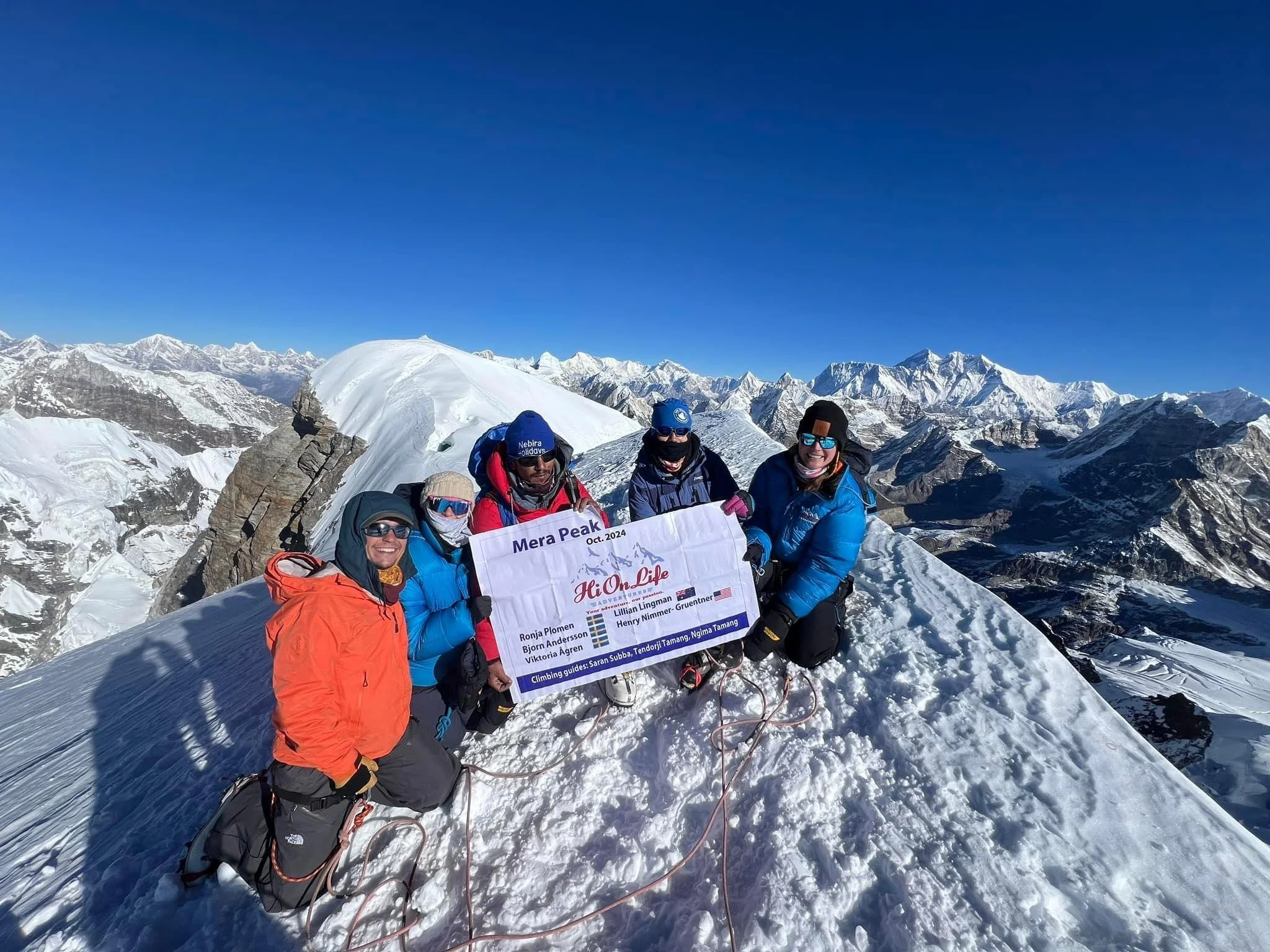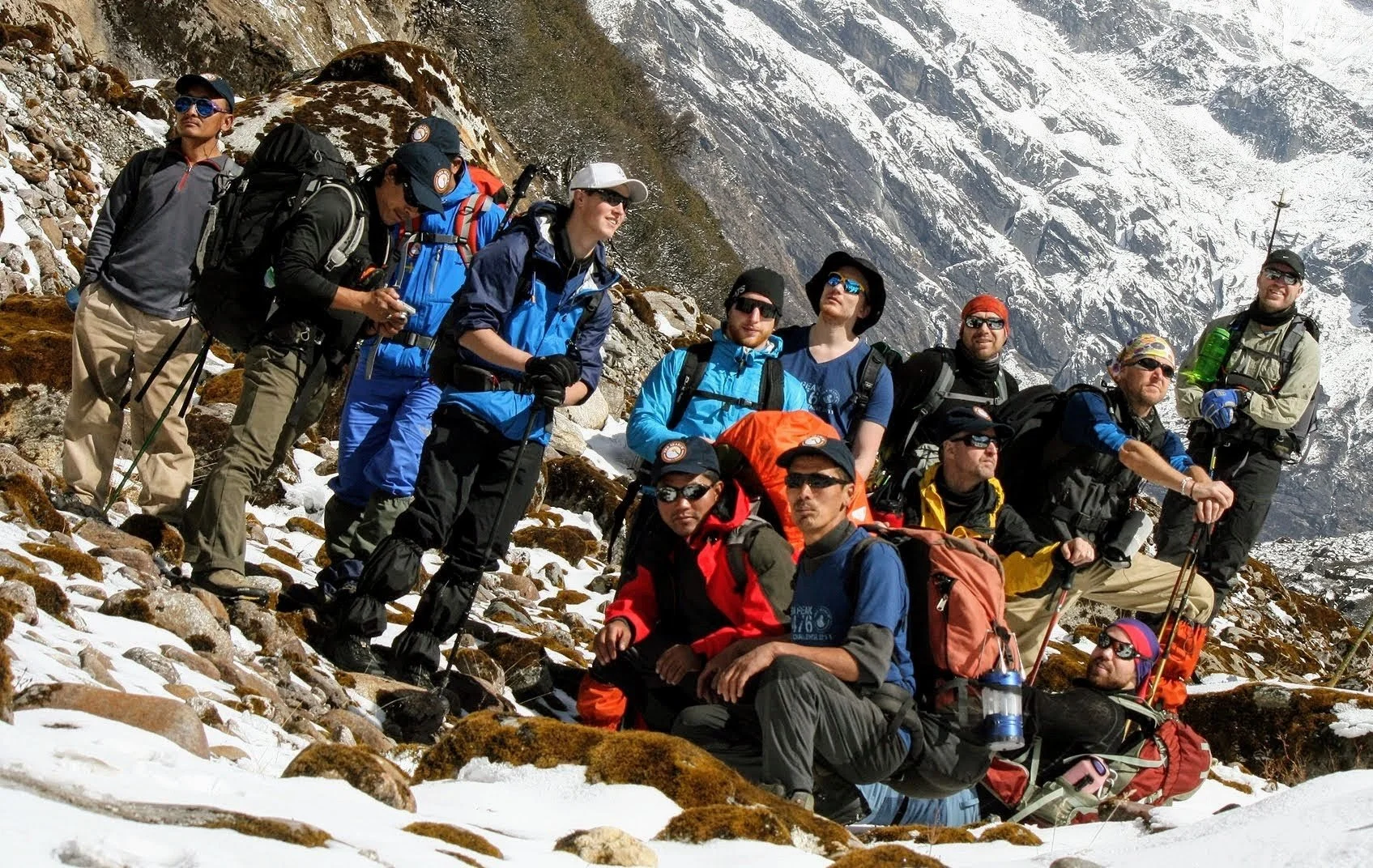Interest form
Expedition to Mera Peak – 6,476 Meters of Pure Magic
Mera Peak, rising to 6,476 meters above sea level, stands proudly south of Mount Everest and offers something truly special for those who crave high altitudes, sweeping views, and a trek far off the beaten path. First summited on May 20, 1953, by Col. Jimmy Roberts and Sen Tenzing, it has since drawn adventurers from around the globe.
Mera Peak is considered one of Nepal’s finest trekking peaks. Why? First, it only requires basic alpine skills to reach the summit. Second, the panoramic view from the top is simply unbeatable. And third, the approach through the Hinku Valley offers a peaceful and remote alternative to the busier Khumbu region—making the journey just as memorable as the summit itself.
From the top of Mera Peak, you’ll see no less than five of the world’s six highest mountains:
Mount Everest (8,848 m), Cho Oyu (8,201 m), Lhotse (8,516 m), Makalu (8,463 m), and Kanchenjunga (8,586 m). The view? Nothing short of epic.
Our expedition begins in Phaplu and winds through charming mountain villages like Nunthala and Kharikhola, continuing to Pangom. From there, we enter the wild and stunning Hinku Valley, crossing several passes and taking time to properly acclimatize before reaching our base camp at Mera La (5,200 m).
At base camp, we settle in and prepare. For the summit push, we climb to high camp at 5,760 meters—and from there, the real adventure begins.
Day-by-Day Itinerary
Day 1 – Arrival in Kathmandu. Transfer to the hotel and welcome dinner.
Day 2 – Flight to Phaplu, followed by a drive to Ringmo and a short trek to Takshindu.
Days 3–17 – Daily trekking of approximately 4–6 hours. Two longer trekking days included. The summit day is expected to take around 10–12 hours.
Day 18 – Helicopter transfer back to Phaplu.
Day 19 – Drive from Phaplu to Kathmandu.
Day 20 – Half-day guided tour in Kathmandu, including lunch.
Day 21 – Transfer to the airport for international departure.
What’s Included
4 nights hotel accommodation in Kathmandu (twin/double room)
All local transport, including domestic flight Kathmandu – Phaplu
Welcome dinner in Kathmandu
English-speaking mountain guide, Sherpas, porters, and expedition cook
All meals and overnight stays in lodges and tents during the trek and climb
Use of duffel bag, down jacket, down sleeping bag, and fleece inner liner
Half-day guided city tour in Kathmandu, including lunch
National park entry fees and climbing permits
Basic first aid kit
All essential climbing equipment (except mountaineering boots, crampons, and helmet)
Not Included
International flights to/from Kathmandu
Travel and medical insurance
Visa fees for Nepal
Tips for porters and climbing Sherpas
What Makes This Expedition So Special
One of the most accessible 6,000-meter peaks in Nepal – perfect for those who dream of high-altitude adventure without needing to be a mountaineering pro. No technical climbing skills or previous experience required – but good physical fitness is essential.
Arguably the most stunning summit view of all Nepal’s trekking peaks – a panorama you’ll carry with you for life.
A front-row seat to five of the world’s six highest mountains:
Mount Everest (8,848 m), Cho Oyu (8,201 m), Lhotse (8,516 m), Makalu (8,463 m), and Kanchenjunga (8,586 m).Trek through alpine forests and rhododendron valleys, staying in remote, authentic mountain villages far from the crowds.
Far fewer trekkers than on the popular Khumbu trail – giving you a sense of solitude and space in the heart of the Himalayas.
Day-by-Day – Mera Peak Expedition
Day 1. Arrival in Kathmandu (1,330 m). Welcome dinner and expedition briefing.
Day 2. Domestic flight to Phaplu (2,415 m), drive to Takshindu (3,100 m), then trek to Nunthala (2,100 m).
Day 3. Trek to Kharikhola (2,200 m) – through vibrant villages and terraced hillsides.
Day 4. Trek toward Pangom (2,900 m), entering a more remote and untouched part of Nepal.
Day 5. Trek to Nazing Dingma (2,720 m) – deeper into the wild Hinku Valley.
Day 6. Trek to Cholem Kharka (3,600 m), climbing among clouds and pine forests.
Day 7. Trek to Panchpokhari (4,200 m), the five sacred lakes.
Day 8. Descent to Kothe (3,600 m), where forest meets glacier landscape.
Day 9. Rest day in Kothe – time to recover and acclimatize.
Day 10. Trek to Thangna (4,400 m), nestled at the foot of towering peaks.
Day 11. Continue to Khare (5,000 m), where the air thins and the views expand.
Day 12. Climbing training and safety briefing in Khare – final preparations for the summit.
Day 13. Trek to Mera La (5,400 m) and establish Base Camp.
Day 14. Ascend to our Advanced Base Camp (5,780 m) – the final staging point before the summit.
Day 15. Summit day! Climb Mera Peak (6,476 m) and return to Khare. An unforgettable day.
Day 16. Contingency day in case of poor weather – safety first.
Day 17. Trek back to Kothe (3,600 m).
Day 18. Helicopter flight to Phaplu (2,415 m) – an epic way to end the trek.
Day 19. Drive back to Kathmandu – a return to civilization.
Day 20. Half-day city tour, farewell lunch, and debrief of the expedition.
Day 21. Departure – with a heart full of mountains and memories for life.

